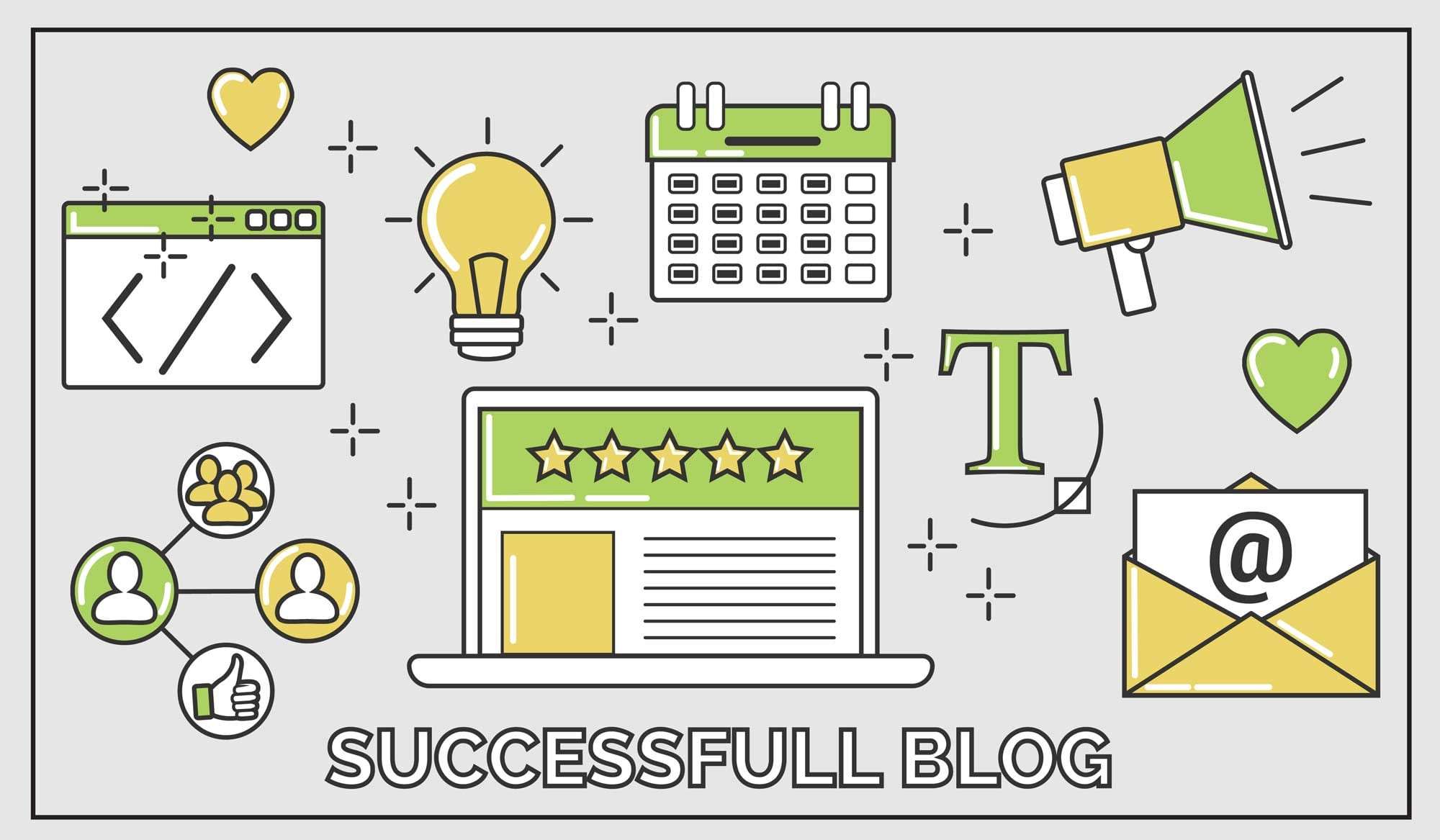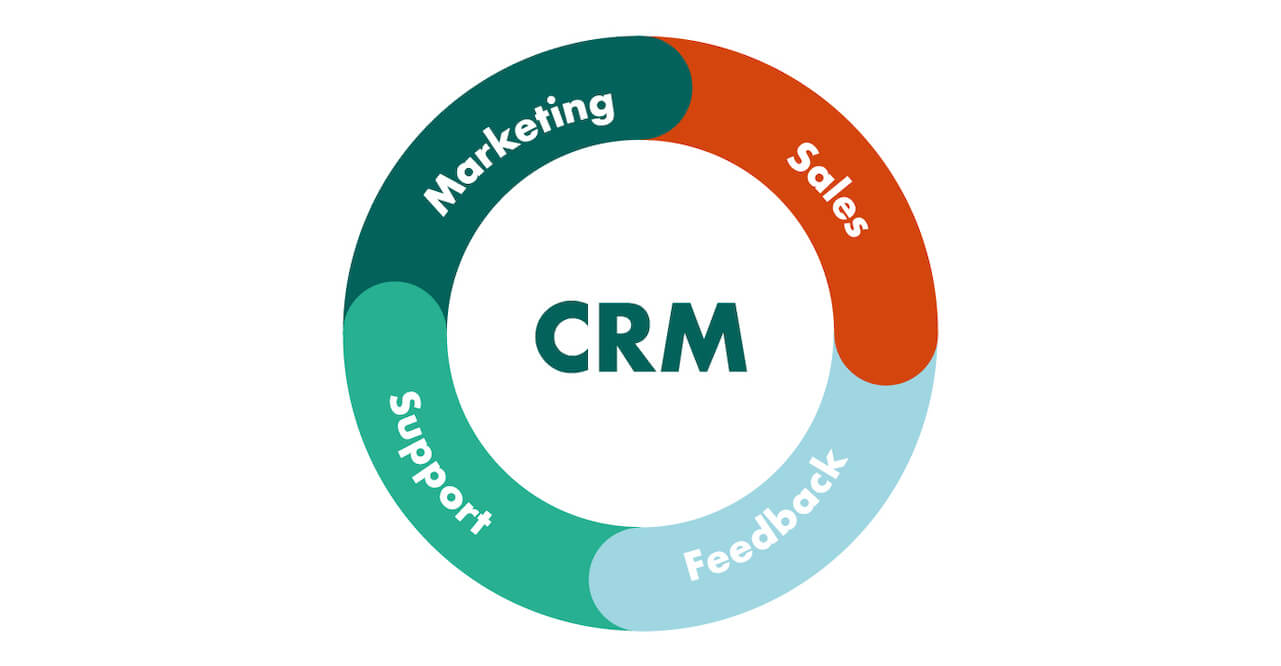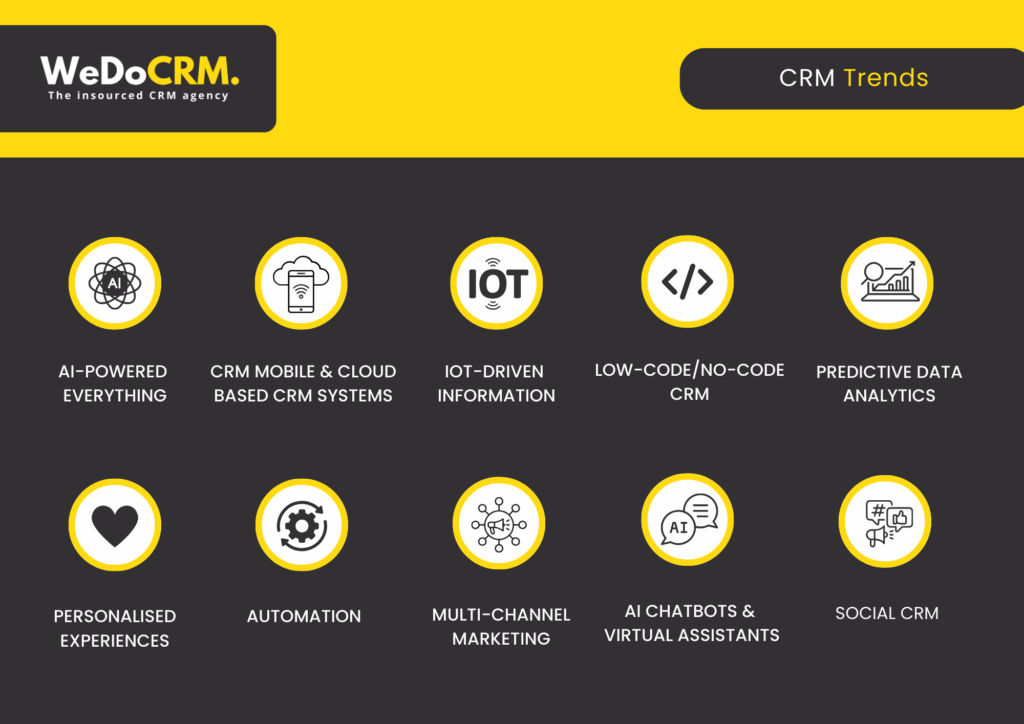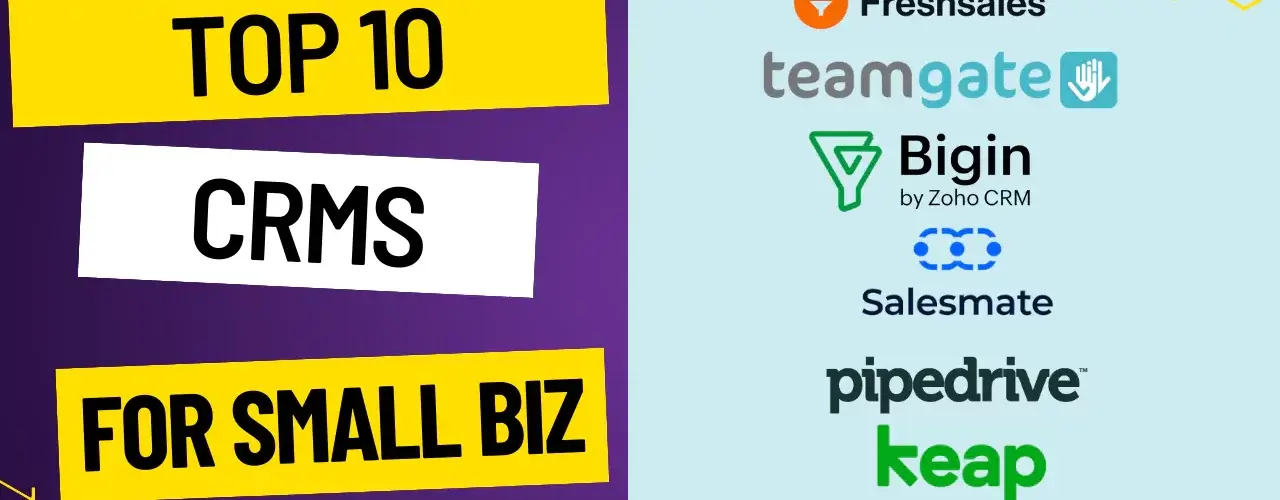Unlock Customer Loyalty: The Ultimate Guide to CRM Marketing Software
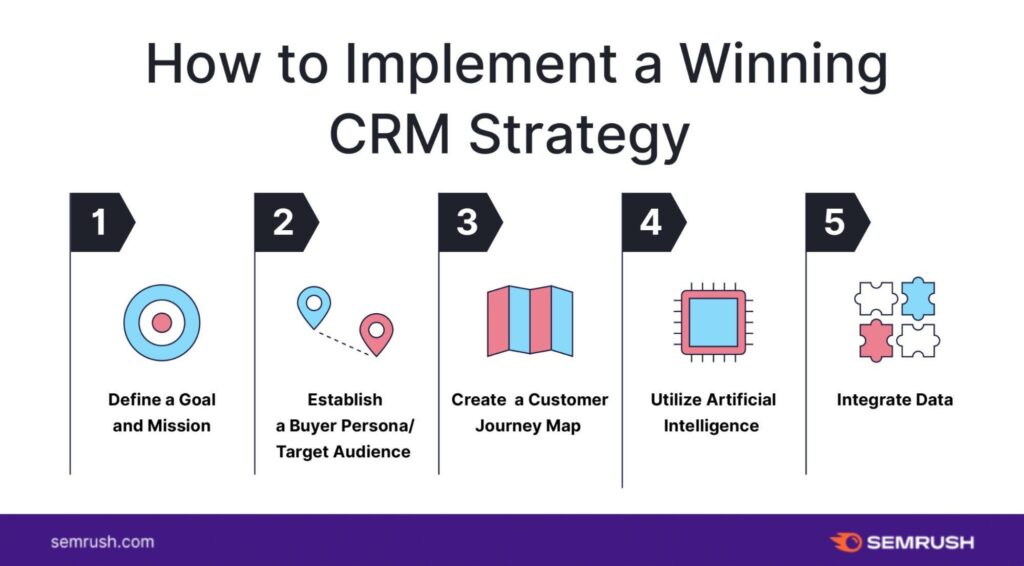
In today’s fast-paced business environment, building strong customer relationships is paramount. It’s no longer enough to simply offer a great product or service; you need to understand your customers, anticipate their needs, and provide them with personalized experiences. This is where Customer Relationship Management (CRM) marketing software steps in. It’s the backbone of modern marketing, enabling businesses to streamline processes, personalize interactions, and ultimately, drive revenue growth. This comprehensive guide will delve into the world of CRM marketing software, providing you with the knowledge and insights you need to choose the right solution and leverage its power to transform your business.
What is CRM Marketing Software?
At its core, CRM marketing software is a technology solution designed to manage and analyze customer interactions and data throughout the customer lifecycle. It centralizes all customer information, from initial contact to purchase and beyond, allowing businesses to gain a 360-degree view of their customers. This holistic understanding empowers businesses to tailor their marketing efforts, improve customer service, and foster long-term customer loyalty.
Think of it as a digital hub that houses everything you need to know about your customers. Instead of scattered spreadsheets, email chains, and notes scribbled on napkins, a CRM system consolidates all this information into one accessible location. This includes:
- Contact Information: Names, addresses, phone numbers, email addresses, and social media profiles.
- Interaction History: Records of all communications, including emails, phone calls, and chat conversations.
- Purchase History: Details of past purchases, including products or services bought, dates, and amounts.
- Marketing Campaign Data: Information on which marketing campaigns customers have interacted with, such as email opens, clicks, and website visits.
- Sales Data: Progress of sales opportunities, including leads, deals, and closed sales.
- Customer Segmentation: Grouping customers based on demographics, behavior, and preferences.
By providing a centralized view of all customer interactions, CRM software allows businesses to identify patterns, predict customer behavior, and personalize their marketing efforts. This leads to more effective campaigns, increased customer engagement, and ultimately, higher revenues.
Key Benefits of CRM Marketing Software
Implementing CRM marketing software can bring a wealth of benefits to your business. Here are some of the most significant advantages:
1. Enhanced Customer Relationships
At the heart of CRM is the ability to build and nurture strong customer relationships. CRM software allows you to:
- Personalize Interactions: Tailor your communications and offers based on individual customer preferences and past interactions.
- Improve Customer Service: Provide faster, more efficient support by having all customer information readily available.
- Increase Customer Loyalty: Create positive customer experiences that encourage repeat business and advocacy.
By understanding your customers better, you can anticipate their needs and provide them with the personalized experiences they crave. This fosters a sense of connection and loyalty that goes beyond transactional relationships.
2. Improved Marketing Efficiency
CRM software streamlines your marketing efforts, making them more effective and efficient. It helps you:
- Segment Your Audience: Divide your customers into targeted groups based on demographics, behavior, and preferences, allowing you to deliver more relevant messaging.
- Automate Marketing Tasks: Automate repetitive tasks such as email marketing, lead nurturing, and social media posting, freeing up your team to focus on more strategic initiatives.
- Track Campaign Performance: Monitor the success of your marketing campaigns, providing valuable insights into what’s working and what’s not.
By automating processes and providing data-driven insights, CRM software helps you optimize your marketing spend and achieve better results.
3. Increased Sales Productivity
CRM software empowers your sales team to close more deals and increase revenue. It provides them with:
- Lead Management: Track and nurture leads throughout the sales pipeline, ensuring that no opportunity is missed.
- Sales Automation: Automate tasks such as follow-up emails and appointment scheduling, freeing up salespeople to focus on selling.
- Sales Forecasting: Analyze sales data to predict future revenue and make informed business decisions.
By streamlining the sales process and providing valuable data, CRM software helps your sales team close more deals, faster.
4. Data-Driven Decision Making
CRM software provides a wealth of data that can be used to make informed business decisions. It allows you to:
- Analyze Customer Behavior: Identify patterns in customer behavior, such as purchasing habits and website activity.
- Track Key Performance Indicators (KPIs): Monitor important metrics such as customer acquisition cost, customer lifetime value, and conversion rates.
- Make Data-Driven Decisions: Use data to inform your marketing strategies, sales tactics, and customer service initiatives.
By providing actionable insights, CRM software empowers you to make smarter decisions and optimize your business performance.
5. Enhanced Collaboration
CRM software facilitates collaboration between different teams, such as marketing, sales, and customer service. It allows them to:
- Share Customer Information: Ensure that everyone has access to the same customer data, promoting consistency and alignment.
- Coordinate Efforts: Work together to provide a seamless customer experience.
- Improve Communication: Stay informed about customer interactions and progress.
By fostering collaboration, CRM software helps break down silos and creates a more cohesive and customer-centric organization.
Core Features of CRM Marketing Software
While the specific features of CRM marketing software vary depending on the vendor, there are several core functionalities that are common across most platforms. These features are essential for effectively managing customer relationships and driving marketing success:
1. Contact Management
This is the foundation of any CRM system. It allows you to store and manage all of your customer contact information, including names, addresses, phone numbers, email addresses, and social media profiles. Contact management features also often include the ability to:
- Import and export contact data.
- Segment contacts based on various criteria.
- Track interactions with contacts.
2. Lead Management
Lead management features help you track and nurture potential customers throughout the sales pipeline. These features typically include:
- Lead capture forms to collect information from website visitors.
- Lead scoring to prioritize leads based on their likelihood of converting.
- Lead nurturing workflows to automate follow-up communications.
3. Sales Automation
Sales automation features streamline the sales process and free up salespeople to focus on selling. These features often include:
- Automated email sequences.
- Appointment scheduling.
- Task management.
4. Marketing Automation
Marketing automation features help you automate and personalize your marketing efforts. These features typically include:
- Email marketing.
- Social media management.
- Landing page creation.
- Workflow automation.
5. Reporting and Analytics
Reporting and analytics features provide valuable insights into your marketing and sales performance. These features typically include:
- Dashboards to visualize key metrics.
- Customizable reports.
- Data analysis tools.
6. Integration Capabilities
CRM software should seamlessly integrate with other tools you use, such as email marketing platforms, social media channels, and e-commerce platforms. This integration allows you to:
- Sync data between different systems.
- Automate workflows.
- Gain a more holistic view of your customer data.
Choosing the Right CRM Marketing Software
Selecting the right CRM marketing software is a crucial decision that can significantly impact your business’s success. With a plethora of options available, it’s essential to choose a solution that aligns with your specific needs and goals. Here’s a step-by-step guide to help you make the right choice:
1. Define Your Needs and Goals
Before you start evaluating different CRM software options, take the time to clearly define your needs and goals. What are you hoping to achieve with CRM? Consider the following questions:
- What are your primary marketing objectives? (e.g., generate more leads, increase sales, improve customer retention)
- What are your biggest pain points in managing customer relationships? (e.g., lack of organization, inefficient communication, difficulty tracking leads)
- What features are essential for your business? (e.g., email marketing, sales automation, lead management)
- What is your budget?
- How many users will need access to the system?
Having a clear understanding of your needs and goals will help you narrow down your options and choose a solution that is the best fit for your business.
2. Research Different CRM Software Options
Once you know what you’re looking for, it’s time to research different CRM software options. There are many vendors in the market, each offering a variety of features and pricing plans. Some of the leading CRM marketing software providers include:
- Salesforce: A comprehensive CRM platform suitable for businesses of all sizes.
- HubSpot: A popular CRM platform with a focus on marketing automation and inbound marketing.
- Zoho CRM: A versatile CRM platform with a wide range of features and affordable pricing plans.
- Microsoft Dynamics 365: A powerful CRM platform that integrates seamlessly with other Microsoft products.
- Pipedrive: A sales-focused CRM platform designed for small and medium-sized businesses.
When researching different options, consider the following factors:
- Features: Does the software offer the features you need?
- Ease of Use: Is the software user-friendly and easy to navigate?
- Pricing: Does the pricing plan fit your budget?
- Integrations: Does the software integrate with other tools you use?
- Customer Support: Does the vendor offer reliable customer support?
- Reviews and Ratings: Read reviews from other users to get an idea of the software’s strengths and weaknesses.
3. Evaluate Your Top Choices
Once you’ve narrowed down your choices, it’s time to evaluate them more closely. Here are some steps to take:
- Request Demos: Schedule demos with the vendors to see the software in action and ask questions.
- Sign Up for Free Trials: Many vendors offer free trials, which allow you to test the software before you commit to a purchase.
- Assess Scalability: Consider how the software will scale as your business grows.
- Consider Customization Options: Determine if the software can be customized to meet your specific needs.
During the evaluation process, pay close attention to the user interface, the ease of use, and the overall functionality of the software. Make sure it’s a good fit for your team and your business processes.
4. Consider Implementation and Training
Implementing CRM software can be a complex process, so it’s important to consider the implementation and training requirements. Some vendors offer implementation services to help you set up the software and migrate your data. Consider the following questions:
- Does the vendor offer implementation services?
- How much time and effort will it take to implement the software?
- What training resources are available?
- Will you need to hire a consultant to help with the implementation?
Adequate training is essential to ensure that your team can effectively use the software and take full advantage of its features. Make sure the vendor provides sufficient training resources, such as online tutorials, documentation, and live support.
5. Make Your Decision
After evaluating your options, it’s time to make your decision. Choose the CRM marketing software that best meets your needs, goals, and budget. Consider the long-term value of the software and how it can help you achieve your business objectives. Be sure to factor in the total cost of ownership, including the software license fees, implementation costs, and ongoing maintenance fees.
Once you’ve made your decision, inform your team and prepare them for the transition. Communicate the benefits of the new CRM software and provide them with the necessary training and support. This will help ensure a smooth implementation and maximize the return on your investment.
Best Practices for CRM Marketing Software
Once you’ve chosen and implemented your CRM marketing software, it’s important to adopt best practices to maximize its effectiveness. Here are some key strategies to follow:
1. Data Quality is King
The success of your CRM system hinges on the quality of your data. Inaccurate, incomplete, or outdated data can lead to poor decisions and wasted marketing efforts. Implement the following practices to ensure data quality:
- Data Entry Standards: Establish clear guidelines for data entry to ensure consistency and accuracy.
- Data Validation: Implement data validation rules to prevent errors.
- Data Cleansing: Regularly cleanse your data to remove duplicates, correct errors, and update outdated information.
- Data Enrichment: Use data enrichment services to supplement your customer data with valuable insights.
Regularly audit and maintain your data to ensure its accuracy and reliability. Make data quality a priority for your entire team.
2. Segment Your Audience
Don’t treat all your customers the same. Segment your audience based on demographics, behavior, purchase history, and other relevant criteria. This allows you to deliver more targeted and personalized marketing messages.
- Define Your Segments: Identify the different customer segments that are relevant to your business.
- Use Data to Segment: Utilize the data within your CRM system to create and refine your segments.
- Personalize Your Messaging: Tailor your marketing messages to resonate with each segment.
- Test and Optimize: Continuously test and optimize your segments to improve their effectiveness.
Effective segmentation leads to higher engagement rates, improved conversion rates, and increased customer loyalty.
3. Automate, But Don’t Over-Automate
Automation is a powerful tool, but it’s important to use it strategically. Automate repetitive tasks, such as email marketing and lead nurturing, to save time and improve efficiency. However, avoid over-automating, which can lead to impersonal and ineffective communications.
- Personalize Your Automation: Use personalization tokens to add a human touch to your automated emails and messages.
- Monitor Your Performance: Track the performance of your automated campaigns and make adjustments as needed.
- Use Automation for Value: Focus on using automation to deliver value to your customers, such as providing helpful information or offering relevant promotions.
Find the right balance between automation and personalization to create a positive customer experience.
4. Integrate Your CRM with Other Tools
Integrate your CRM system with other tools you use, such as email marketing platforms, social media channels, and e-commerce platforms. This integration allows you to:
- Sync Data: Share data between different systems to ensure consistency and accuracy.
- Automate Workflows: Automate tasks across different platforms to save time and improve efficiency.
- Gain a Holistic View: Get a complete view of your customer data, including their interactions across different channels.
Integration is key to maximizing the value of your CRM system and streamlining your marketing efforts.
5. Track and Analyze Your Results
Regularly track and analyze your marketing and sales performance to identify what’s working and what’s not. Use the reporting and analytics features of your CRM system to:
- Monitor Key Metrics: Track important metrics such as customer acquisition cost, customer lifetime value, and conversion rates.
- Identify Trends: Look for patterns and trends in your data to gain insights into customer behavior.
- Optimize Your Campaigns: Use your data to optimize your marketing campaigns and improve your results.
Data-driven decision-making is essential for success. Use your CRM data to continuously improve your marketing strategies and achieve your business goals.
6. Train Your Team
Ensure that your team is properly trained on how to use the CRM software and understand its capabilities. Provide ongoing training and support to help them stay up-to-date with the latest features and best practices. Encourage them to actively use the CRM system and provide feedback on how it can be improved.
A well-trained team will be more productive and effective at using the CRM software, leading to better results for your business.
7. Stay Flexible and Adapt
The business landscape is constantly evolving, so it’s important to stay flexible and adapt your CRM strategies as needed. Regularly review your CRM processes and make adjustments to meet the changing needs of your customers and your business. Be open to new technologies and approaches that can help you improve your customer relationships and achieve your goals.
A willingness to adapt and innovate is essential for long-term success with CRM marketing software.
The Future of CRM Marketing Software
The future of CRM marketing software is bright, with exciting advancements on the horizon. Here are some trends to watch:
- Artificial Intelligence (AI): AI is already playing a significant role in CRM, and its influence will continue to grow. AI-powered CRM systems can automate tasks, personalize interactions, and provide valuable insights into customer behavior.
- Machine Learning (ML): Machine learning algorithms can analyze vast amounts of data to identify patterns, predict customer behavior, and personalize marketing messages.
- Enhanced Personalization: CRM software will continue to focus on enabling businesses to deliver hyper-personalized experiences to their customers.
- Mobile CRM: Mobile CRM solutions will become even more important, allowing businesses to manage customer relationships on the go.
- Integration with Emerging Technologies: CRM systems will integrate with new technologies, such as the Internet of Things (IoT) and virtual reality (VR), to create even more immersive and personalized customer experiences.
As technology continues to evolve, CRM marketing software will become even more sophisticated and powerful, enabling businesses to build stronger customer relationships and drive greater success.
Conclusion
CRM marketing software is a powerful tool that can transform your business by helping you build stronger customer relationships, improve marketing efficiency, and increase sales productivity. By understanding the benefits of CRM, choosing the right software, and adopting best practices, you can leverage the power of CRM to achieve your business goals. The future of CRM is bright, with exciting advancements on the horizon that will further enhance its capabilities. Embrace the power of CRM and unlock the potential for lasting customer loyalty and business success.

